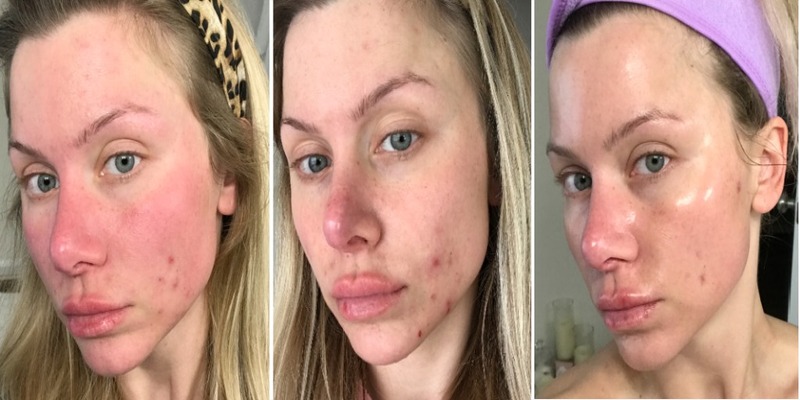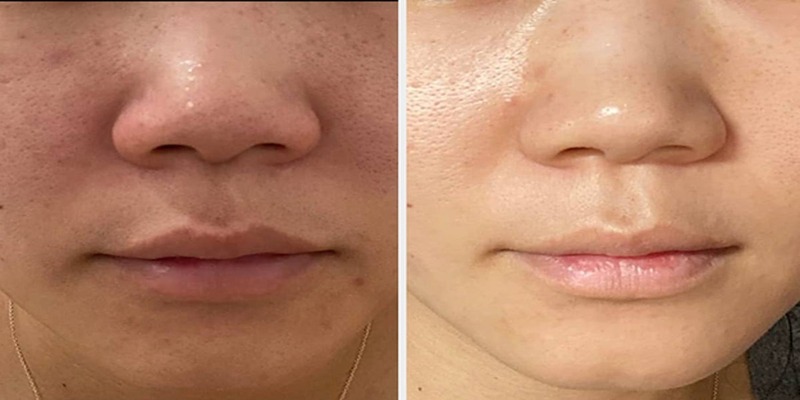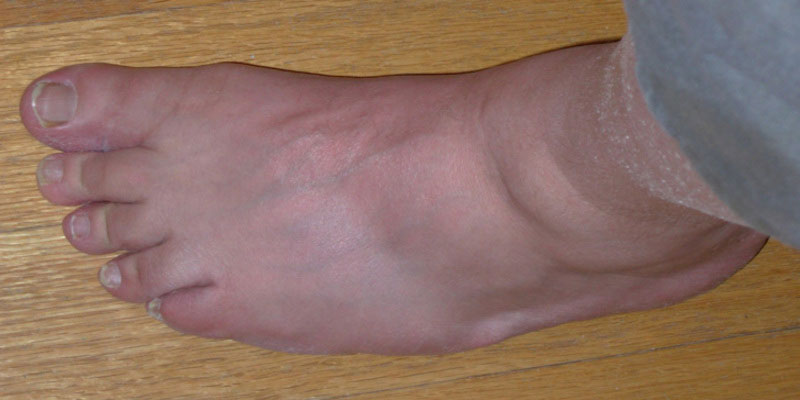The most recent claim to make the rounds on Skincare TikTok is that users of Accutane (also known as Isotretinoin) would receive a "free nose job" due to the medication's effects on nasal tissue. Is this another TikTok hoax, or can Accutane cause your nose to shrink? To find out, we consulted a professional.
What Exactly Is The Drug Accutane?

As a retinoid, Isotretinoin is a vitamin A derivative. In terms of how it affects your body, it functions similarly to vitamin A. Getting too much of this vitamin is not good since it can accumulate in your tissues and cause problems soon. Supplemental vitamin A should be avoided while using this medication.
Several other brand names for Isotretinoin exist, such as Absorica, Amnesteem, Claravis, Myorisan, and Sotret. The original Accutane brand has been discontinued. But this old moniker for the substance persists in some circles. Isotretinoin has an apparent cosmetic impact because it is intended to treat severe acne.
Will Accutane Make My Nose Smaller?
Unfortunately, your nose will not shrink while using Accutane, Dr. Rodney explained. A smaller-looking nose isn't guaranteed, although Accutane could help in some instances. Dr. Joshua Zeichner, head of Cosmetic &'' Clinical Research in Dermatology at Mount Sinai Hospital, told Health that Accutane's effect on the oil glands in that area might make the nose appear less bulbous.
Since the nose contains some of the most active oil glands in the body, reducing their size while taking Accutane may theoretically make the nose appear smaller. Doris Day, MD, a New York City dermatologist, cautions that you would only notice a difference if you already have enlarged, hyperactive sebaceous glands. Most individuals don't," Dr. Day told Health.
Dr. Day further warned that Accutane would not affect the physical appearance of the nose, even if it were enlarged due to excessive sebaceous glands.
Take Accutane Seriously if You Want Clear Skin
Although Dr. Day considers Accutane his favorite medication, he cautions that it must be used with great care, only for short periods, and only to suitable candidates. Accutane's possible adverse effects are extensive and range from skin dryness to birth abnormalities; thus, the medicine should not be used carelessly. The following are some of the potential adverse effects of Accutane, according to the American Academy of Dermatology (AAD):
- Chapped lips and dry skin
- Nosebleeds
- Eyes that are dry and inflamed
- Dehydrated
- Highly photosensitive
- Acne may temporarily worsen.
- Difficulty seeing in low light
- Thinning hair
Common Isotretinoin Adverse Effects (Accutane)

The severity of the side effects may be related to the dose of Isotretinoin your doctor recommends. According to the American Osteopathic College of Dermatology, smaller amounts may not have any adverse effects, while those given more significant quantities may experience more severe side effects.
Isotretinoin has several potential adverse effects, some of the most prevalent ones being:
- Dry skin
- Dry Mouth Syndrome
- Dry, cracked lips
- nasal dryness, which may result in nosebleeds
Sun sensitivity has been seen in patients using Isotretinoin. When going outside, protect your skin from the sun and keep it hydrated. Don't use an indoor tanning booth of any kind.
The FDA advises waiting at least six months after stopping Isotretinoin before undergoing any cosmetic operations, including hair removal by waxing, dermabrasion, or laser therapy, due to the increased fragility and scarring risk of the skin.
The Accutane Effects on Long-Term Health
Your red and white blood cell counts may drop while using Isotretinoin. Feeling weak or dizzy, and having trouble breathing, are possible symptoms.
The blood concentration of Isotretinoin might also rise over time. The quantities of sugar and fat in your blood might become problematic. When using this drug for an extended period, your doctor may want to check your liver function, blood sugar, and cholesterol levels.
More in-depth research is required to fully understand the reported sexual dysfunction associated with long-term isotretinoin usage.
You should contact your doctor immediately if you suffer any of the following adverse effects or symptoms while taking Isotretinoin. If not treated quickly, they can cause permanent harm to vital organs and other tissues.
Conclusion
Many TikTokers have claimed that Accutane has given them rhinoplasty results, but this is not feasible, according to doctors. If you're on Accutane and you've observed (or desired) a slight alteration in the appearance of your nose, you may chalk it up to a reduction in oil production. You should probably avoid this hack if you're not already on Accutane as part of a recommended treatment plan.




